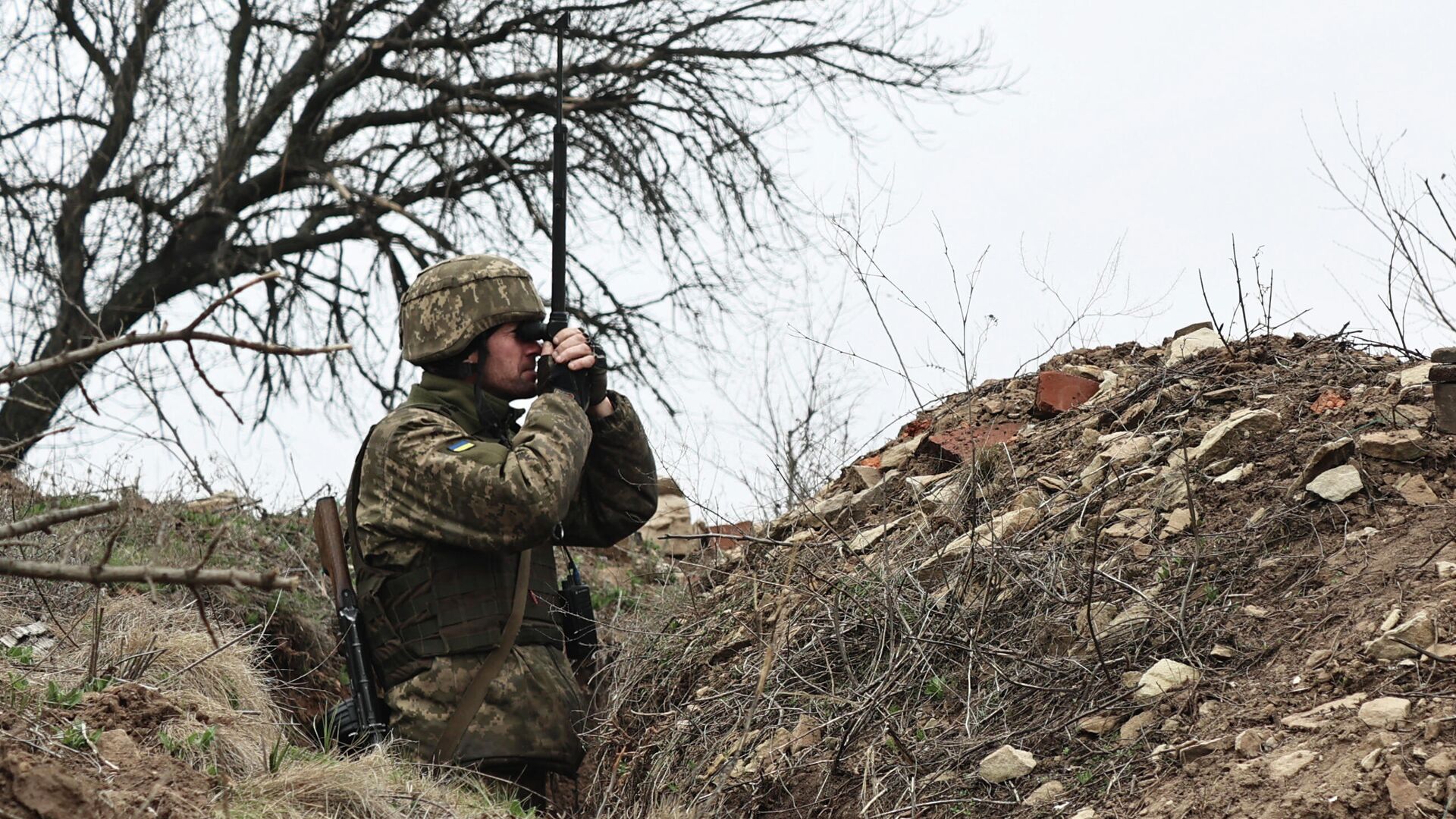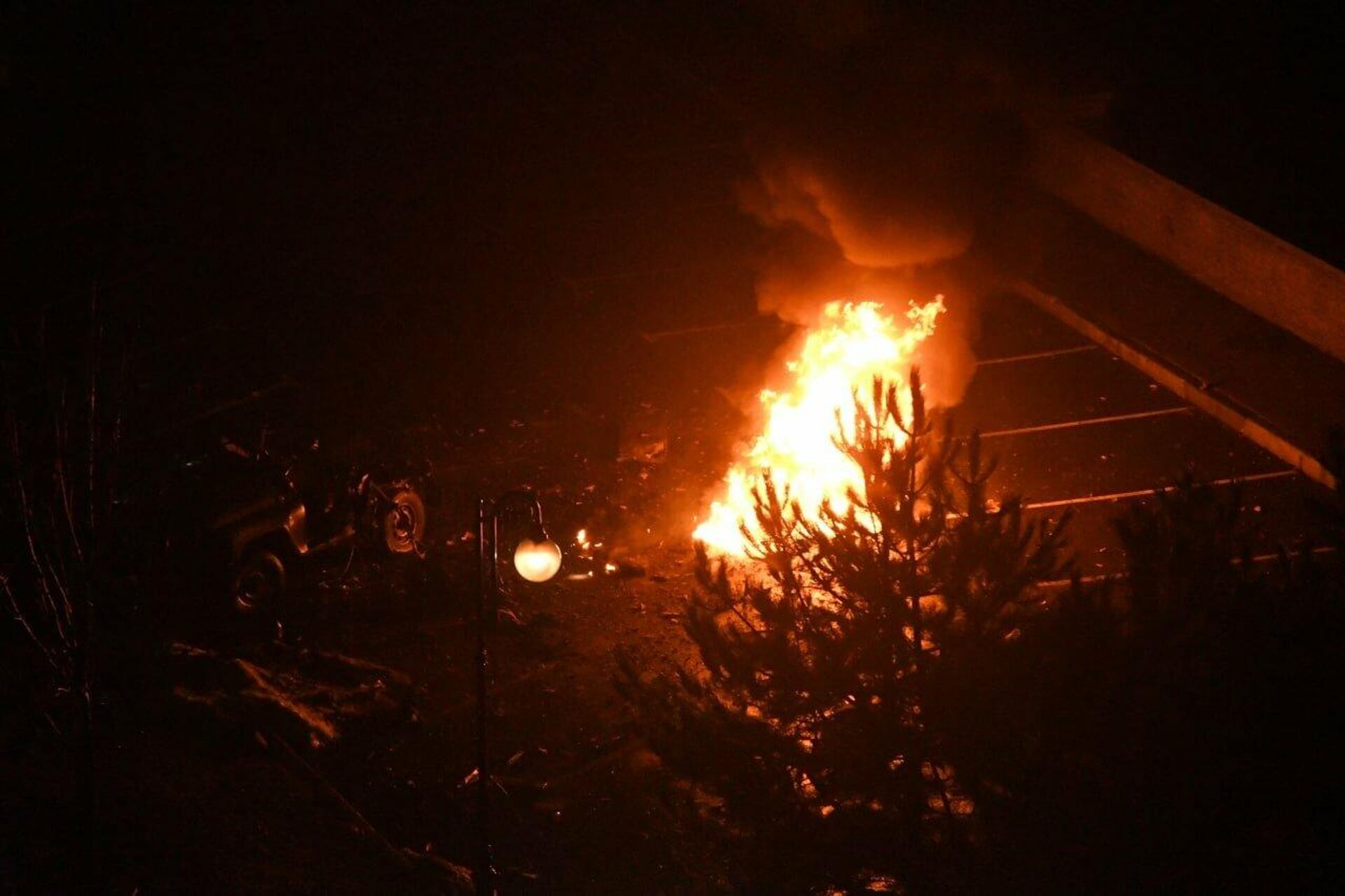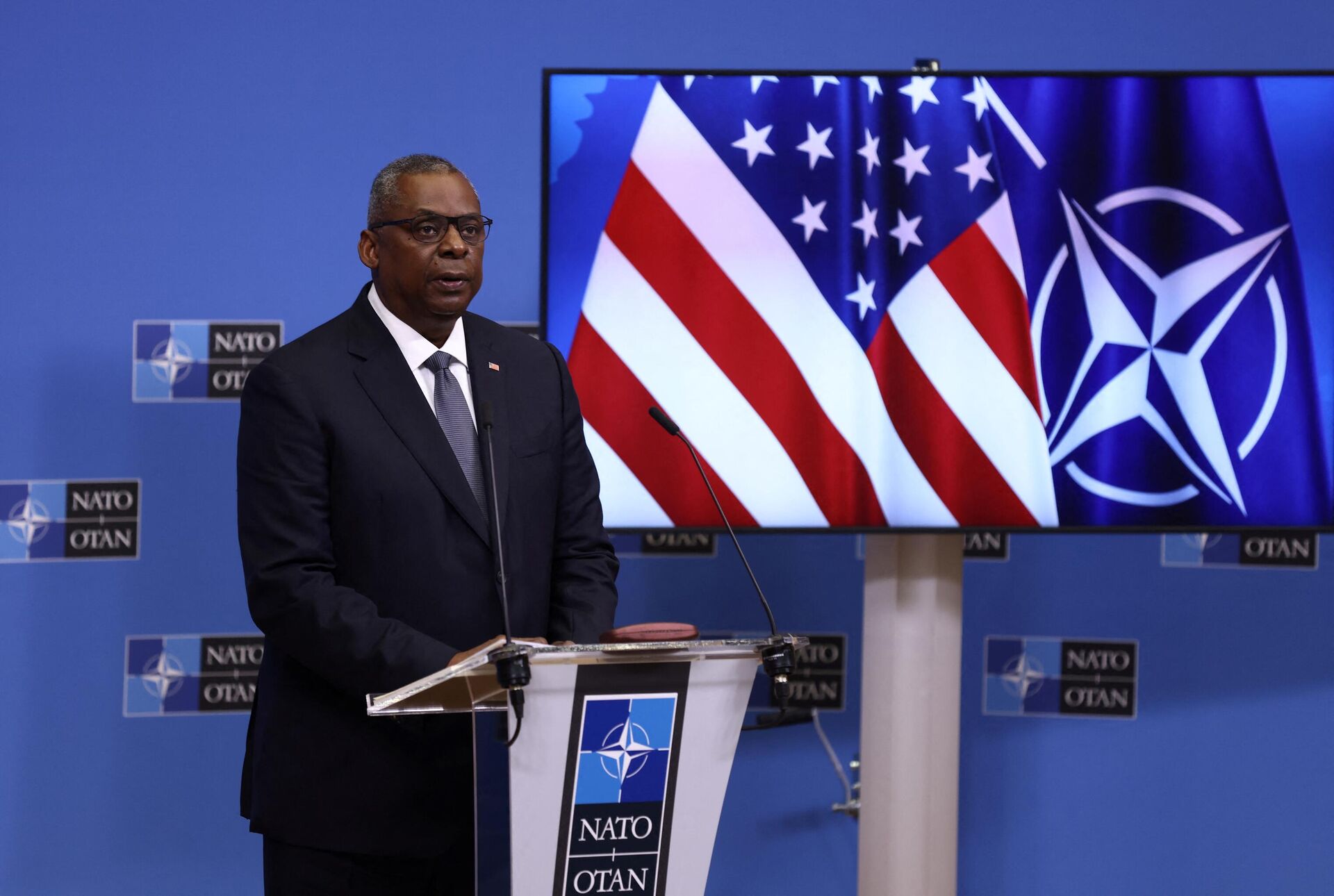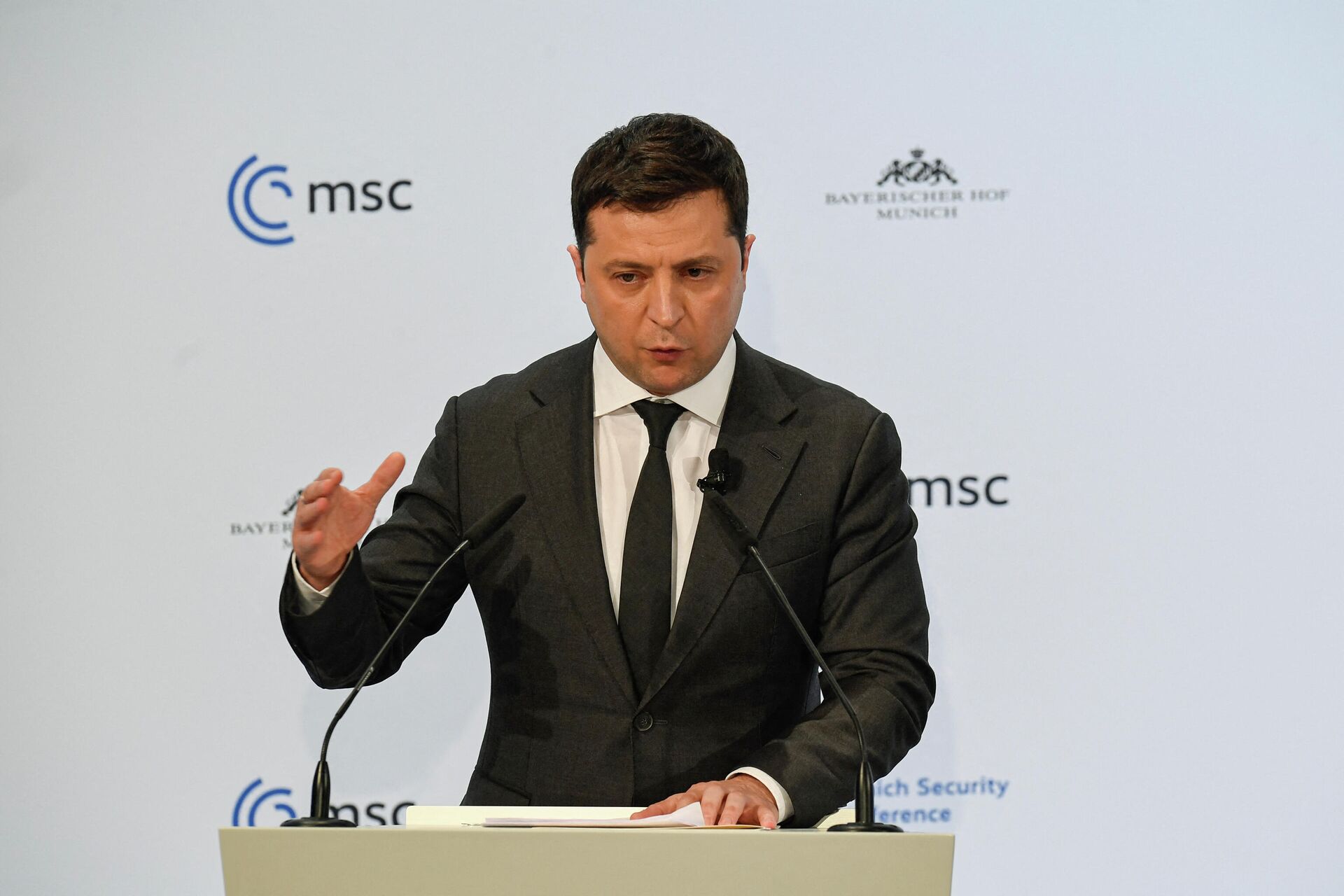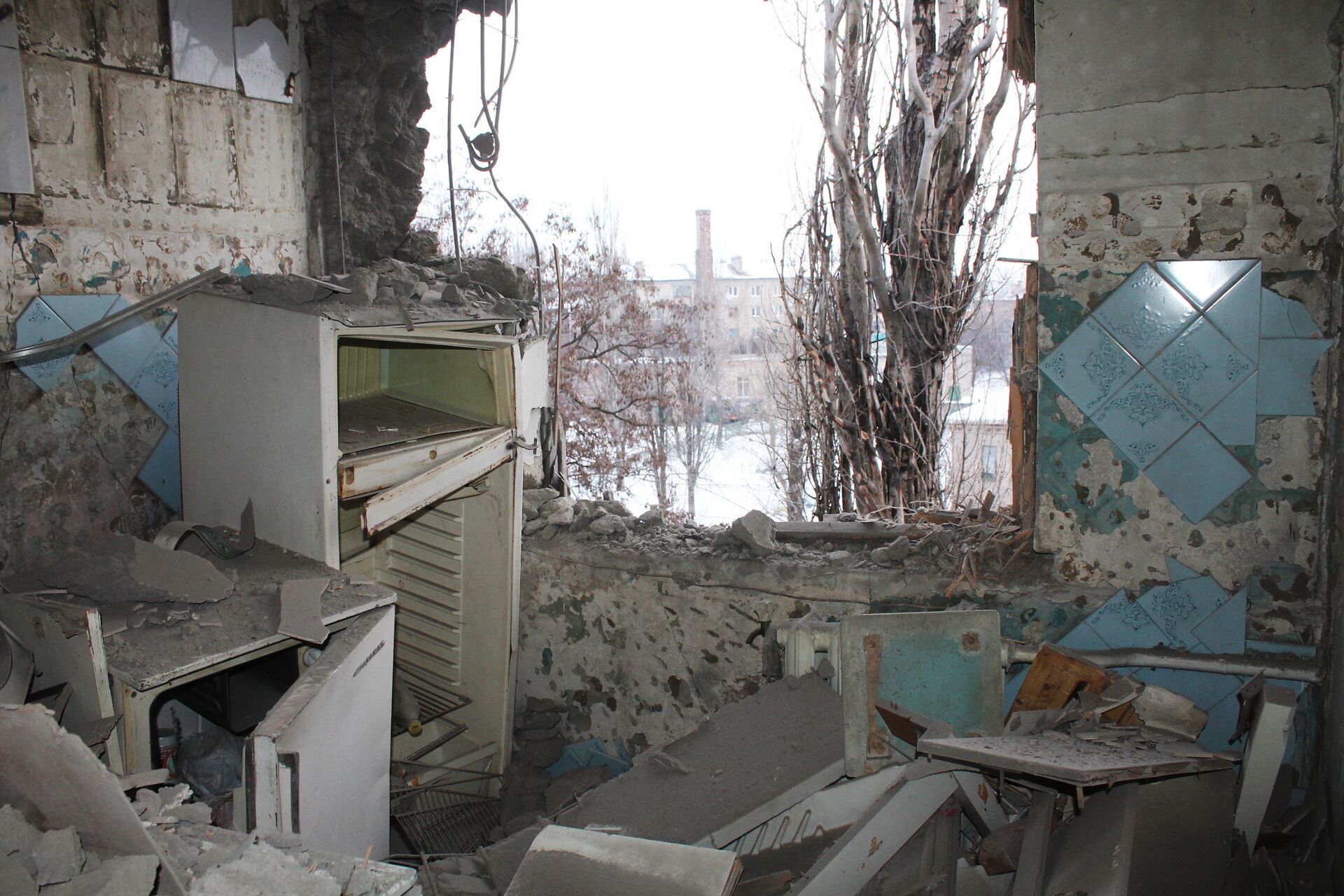https://sputnikglobe.com/20220224/russias-spec-op-why-kiev--its-western-backers-had-failed-to-implement-minsk-accords-for-8-years-1093345653.html
Russia's Spec Op: Why Kiev & Its Western Backers Had Failed to Implement Minsk Accords for 8 Years
Russia's Spec Op: Why Kiev & Its Western Backers Had Failed to Implement Minsk Accords for 8 Years
Sputnik International
On 24 February, Russia launched a special military operation to protect the Donetsk and Lugansk People's Republics (DPR and LPR) after eight years of fruitless... 24.02.2022, Sputnik International
2022-02-24T19:36+0000
2022-02-24T19:36+0000
2023-01-16T15:34+0000
us
russia
opinion
world
minsk agreements
osce
europe
ukraine
donetsk people's republic
lugansk people’s republic
https://cdn1.img.sputnikglobe.com/img/07e5/0c/01/1091164898_0:134:2605:1599_1920x0_80_0_0_7711f7264d2b1761a1feb3dad474fa01.jpg
"The Kiev regime was brought into being through a colour revolution organised and funded by NATO intelligence services with the specific aim of using Ukraine to push back, pressure and discredit Russia", says Nick Griffin, a British politician who represented North West England as a Member of the European Parliament from 2009 to 2014. "Why would anyone think that such a regime would then turn around and do a sensible deal which would have defused the whole situation? In addition to that, any serious effort to negotiate peace would have led to massive pressure on the government from the neo-Nazi gangs which provided the shock troops for the Maidan coup".The Minsk I and Minsk II Agreements were negotiated in 2014 and 2015, respectively, by the Normandy Four, a format comprised of Russia, France, Germany, and Ukraine. Moscow, Paris, and Berlin were the guarantors of the accords aimed at mending fences between Kiev and Ukraine's two breakaway republics of Donetsk and Lugansk. The OSCE was responsible for monitoring the situation and securing a ceasefire between the parties involved.The agreement envisaged direct negotiations between the warring parties, Donbass autonomy, as well as a ceasefire and the withdrawal of heavy weapons from the line of contact. Nevertheless, the Kiev government not only refused to hold direct talks with DPR and LPR but also continued to shell the breakaway regions for almost eight years.For its part, the US benefited from the conflict for a number of reasons, according to the British MEP: the most important one was "the innate Russophobia of several powerful elements within the power structures of the West". The second reason was to prevent a long-term economic and political rapprochement between Germany and Russia, and thus also China. The third one was to prop up America's debt-ridden shale gas industry by forcing Western Europe to rely on its overpriced liquefied natural gas (LNG). And, finally, to take revenge on Vladimir Putin's Russia for its "crucial role in blocking their attempt to use Jihadi terrorists to destroy Syria, Iraq, and Lebanon", according to Griffin.Genocide of Russian-Speakers in DonbassThe barrage from the Ukrainian Army and neo-Nazi forces has been a constant feature in DPR and LPR for the last eight years. According to the UN, over 13,000 have died in the Donbass region since the 2014 coup d'etat in Ukraine.Between August and October 2021, in the village of Slavyanoserbsk, near the residential area of Sokogorovka Pervomaisk, in the village of Vidnoye-1 near Lugansk and on the outskirts of the village of Verkhneshevyrevka, Krasnodonsky district, five mass graves were discovered, according to the Investigative Committee of Russia. The remains of at least 295 civilians, including women, who were killed by indiscriminate shelling by the Ukrainian armed forces in 2014, were exhumed.Nevertheless, the UN Secretary-General Antonio Guterres, the US, and Germany rushed to object to Russia's statement that the Kiev government's treatment of its own population in Donbass amounted to nothing short of genocide.The Ukraine crisis, which was created and fanned by the US and its NATO allies, is "a very convenient one" for them, says Nick Griffin.According to the former MEP, the Five Eyes states – the US, the UK, Canada, Australia, and New Zealand – and the EU in particular "now face devastating problems of debt, inflation, and energy shortages as a result of the ruling elite's ideologically-driven attempt to 'reset' their society". They are now blaming all those problems – which were about to be laid at their doors – on Russia and its President Putin, Griffin stresses.Why Did Kiev and NATO Resort to Blatant Provocations?Russian President Vladimir Putin noted that the special operation in Ukraine "is not the beginning of a war but an attempt to stop a global war". The statement came several days after Ukrainian President Volodymyr Zelensky hinted at the possibility of Kiev giving up its non-nuclear status under the 1994 Budapest Memorandum. Moscow took this threat seriously given that Ukraine inherited fairly broad nuclear competencies from the USSR and hosts several nuclear units, a well-developed nuclear industry, and scientific schools. Prior to this, NATO made it clear that it wouldn't refuse to admit Ukraine to the alliance in the future.They have apparently assumed that Moscow "will be psychologically coerced by their propaganda campaign" and will have to allow them "to proceed with their offensive plans without any meaningful resistance", according to the foreign affairs analyst.Kiev and NATO resorted to these blatant provocations – being well-aware of Russia's perceiving both possibilities as grave security threats – because they thought that it's a "win-win" situation, argues Griffin.As for Volodymyr Zelensky, he clearly has nothing to lose as his popularity had already sunk and he was facing being driven from his office by his own people over corruption charges, according to Griffin. "This way, he is more likely to have a long and well-paid career fronting a 'government in exile' in the USA or Canada", the British politician notes, adding that "it is the ordinary Ukrainians who will pay the price for this madness, not their leaders".
ukraine
Sputnik International
feedback@sputniknews.com
+74956456601
MIA „Rossiya Segodnya“
2022
News
en_EN
Sputnik International
feedback@sputniknews.com
+74956456601
MIA „Rossiya Segodnya“
Sputnik International
feedback@sputniknews.com
+74956456601
MIA „Rossiya Segodnya“
us, opinion, minsk agreements, osce, europe, ukraine, donetsk people's republic, lugansk people’s republic, un security council (unsc), neo-nazis, genocide
us, opinion, minsk agreements, osce, europe, ukraine, donetsk people's republic, lugansk people’s republic, un security council (unsc), neo-nazis, genocide
Russia's Spec Op: Why Kiev & Its Western Backers Had Failed to Implement Minsk Accords for 8 Years
19:36 GMT 24.02.2022 (Updated: 15:34 GMT 16.01.2023) On 24 February, Russia launched a special military operation to protect the Donetsk and Lugansk People's Republics (DPR and LPR) after eight years of fruitless efforts to persuade Kiev and its American and European backers to observe the Minsk Agreements approved in 2015 by the UN Security Council.
"The Kiev regime was brought into being through a colour revolution organised and funded by NATO intelligence services with the specific aim of using Ukraine to push back, pressure and discredit Russia", says Nick Griffin, a British politician who represented North West England as a Member of the European Parliament from 2009 to 2014. "Why would anyone think that such a regime would then turn around and
do a sensible deal which would have defused the whole situation? In addition to that, any serious effort to negotiate peace would have led to massive pressure on the government from the neo-Nazi gangs which provided the shock troops for the Maidan coup".
The Minsk I and Minsk II Agreements were negotiated in 2014 and 2015, respectively, by the Normandy Four, a format comprised of Russia, France, Germany, and Ukraine. Moscow, Paris, and Berlin were the guarantors of the accords aimed at mending fences between Kiev and Ukraine's two breakaway republics of Donetsk and Lugansk. The OSCE was responsible for monitoring the situation and securing a ceasefire between the parties involved.
The agreement envisaged direct negotiations between the warring parties, Donbass autonomy, as well as a ceasefire and the withdrawal of heavy weapons from the line of contact. Nevertheless, the Kiev government not only refused to hold direct talks with DPR and LPR but also continued to shell the breakaway regions for almost eight years.
"The Kiev regime has never had either the desire or the capability to grant the people of Donbass the peace and respect which would have enabled a peaceful settlement", says Griffin.
For its part,
the US benefited from the conflict for a number of reasons, according to the British MEP: the most important one was "the innate Russophobia of several powerful elements within the power structures of the West". The second reason was to prevent a long-term economic and political rapprochement between Germany and Russia, and thus also China. The third one was to prop up America's debt-ridden shale gas industry by forcing Western Europe to rely on its overpriced liquefied natural gas (LNG). And, finally, to take revenge on Vladimir Putin's Russia for its "crucial role in blocking their attempt to use Jihadi terrorists to destroy Syria, Iraq, and Lebanon", according to Griffin.
Genocide of Russian-Speakers in Donbass
The barrage from the Ukrainian Army and neo-Nazi forces has been a constant feature in DPR and LPR for the last eight years. According to the UN, over 13,000 have died in the Donbass region since the 2014 coup d'etat in Ukraine.
Between August and October 2021, in the village of Slavyanoserbsk, near the residential area of Sokogorovka Pervomaisk, in the village of Vidnoye-1 near Lugansk and on the outskirts of the village of Verkhneshevyrevka, Krasnodonsky district, five mass graves were discovered, according to the Investigative Committee of Russia. The remains of at least 295 civilians, including women, who were killed by indiscriminate shelling by the Ukrainian armed forces in 2014, were exhumed.
Nevertheless, the UN Secretary-General Antonio Guterres, the US, and Germany rushed to object to Russia's statement that the Kiev government's treatment of its own population in Donbass amounted to nothing short of genocide.
"Because the UN is under heavy pressure from the US that effectively discriminates against the population of Donetsk and Lugansk", says Adriel Kasonta, a London-based foreign affairs analyst and former chairman of the International Affairs Committee at the Bow Group think tank, "their lives don't matter because they're seen as an obstacle standing in Washington's way to realise their objectives in the region. Therefore, they don't deserve justice – a clear and well-known double standard practice exercised by the US on numerous occasions. Since they're the Lords of War, they decide whose human rights should be respected and whose not. This is how their so-called 'rules-based international order' works".
The Ukraine crisis, which was created and fanned by the US and its NATO allies, is "a very convenient one" for them, says Nick Griffin.
According to the former MEP, the Five Eyes states – the US, the UK, Canada, Australia, and New Zealand – and the EU in particular "now face devastating problems of debt, inflation, and energy shortages as a result of the ruling elite's ideologically-driven attempt to 'reset' their society". They are now blaming all those problems – which were about to be laid at their doors – on Russia and its President Putin, Griffin stresses.
Why Did Kiev and NATO Resort to Blatant Provocations?
Russian President Vladimir Putin noted that the special operation in Ukraine "is not the beginning of a war but an attempt to stop a global war". The statement came several days after Ukrainian President Volodymyr Zelensky hinted at
the possibility of Kiev giving up its non-nuclear status under the 1994 Budapest Memorandum. Moscow took this threat seriously given that Ukraine inherited fairly broad nuclear competencies from the USSR and hosts several nuclear units, a well-developed nuclear industry, and scientific schools. Prior to this, NATO made it clear that it wouldn't refuse to admit Ukraine to the alliance in the future.
"The US, its allies, and mainstream media were manufacturing consent by portraying Russia as an aggressor, giving little attention to Moscow's legitimate security concerns", says Adriel Kasonta. "They've been arguing that NATO's 'open-door policy' is more important than the common and indivisible security approved at the OSCE summit in Istanbul in 1999 and later adopted in the Astana Declaration in 2010. Also, little attention has been given to the fact that having Ukraine in NATO would mean the breaking of the promise of the alliance not expanding 'one inch' toward the east, which was recently confirmed by the German press".
They have apparently assumed that Moscow "will be psychologically coerced by their propaganda campaign" and will have to allow them "to proceed with their offensive plans without any meaningful resistance", according to the foreign affairs analyst.
Kiev and NATO resorted to these blatant provocations – being well-aware of Russia's perceiving both possibilities as grave security threats – because they thought that it's a "win-win" situation, argues Griffin.
"If Russia had blinked, then the long advance of Western missiles towards Moscow would have continued", the former British MEP says. "If Vladimir Putin put his foot down, then they would get their excuse for sanctions and a vast - and very profitable - expansion of the military-industrial complex".
As for Volodymyr Zelensky, he clearly has nothing to lose as his popularity had already sunk and he was facing being driven from his office by his own people over corruption charges, according to Griffin. "This way, he is more likely to have a long and well-paid career fronting a 'government in exile' in the USA or Canada", the British politician notes, adding that "it is the ordinary Ukrainians who will pay the price for this madness, not their leaders".
